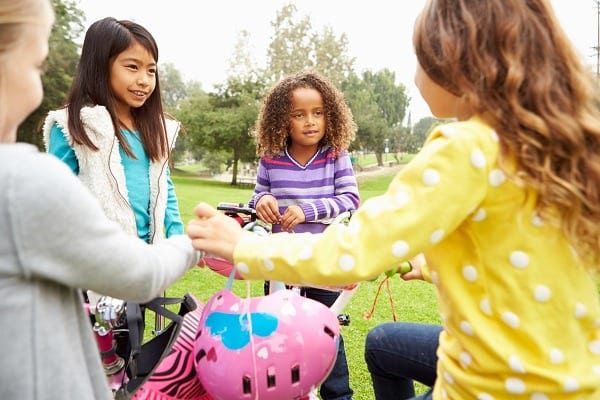Global media outlets including the BBC, the New York Times and Time magazine have run scathing editorials highlighting Australia’s sluggish reaction to the climate crisis. Politicians, famous environmentalists and scientists of the ilk of Sir David Attenborough and even actors including Russell Crowe and Bette Midler have all stressed that the fires are an urgent reminder of the climate crisis unfolding around the globe. “With Australia on fire and the arctic in meltdown, it’s clear we’re in a climate emergency,” Hilary Clinton said.
Like so many Australians, I feel heartbroken, infuriated and ashamed.
The world is watching us – and our children are watching us too. My six-year-old daughter asked me the other day, “Mum is it true that in twelve years the world will be much, much hotter?” The way our leaders deal with this crisis will redefine our national identity.
Australia has an opportunity to become a world leader in climate action.
The urgency of this cannot be overstated. Future generations and the world’s most vulnerable children are relying on us to act in their best interests. This is why, today, four of Australia’s biggest international overseas assistance and development agencies have come together to issue an urgent plea for swift action to address the rapidly escalating global climate crisis.
We are urging the government to take urgent, meaningful and ambitious climate action to secure the futures of all children, young people and future generations. This means setting more ambitious emission reduction targets by the UN climate conference (COP26) in November this year, in line with keeping the global temperature rise to within 1.5 ̊C, beyond which many countries will face unmanageable suffering and devastation.
Joint campaigns in the development sector do not happen often, but Plan International Australia, Save the Children Australia, World Vision and Oxfam acknowledge that this issue is so pressing and unprecedented that we must advocate in alliance to amplify the voices of the world’s most vulnerable people.
Every day, our aid workers see the impacts of increasingly erratic weather patterns, from the alarming hunger emergency sweeping over Southern Africa to the recent flash floods in Indonesia that claimed 66 lives. As fires raged in Australia over the Christmas season, the Philippines was struck by Typhoon Phanfone, a disaster that killed at least 20 people and displaced thousands more.
The disproportionate impact on children
We know that climate change has a disproportionate impact on children – particularly girls. It is the most significant intergenerational equity issue of our time; children and future generations who have contributed least to the crisis will be the ones bearing the brunt of its impacts. This is why we are also asking the government to sign the Intergovernmental Declaration on Children, Youth and Climate Action – to acknowledge that children and young people face heightened and specific risks due to climate change.
Over the summer, I have thought often of Marinel, a young and inspiring Filipino woman from Matarinao in the country’s ‘Typhoon Belt’ whose family was devastated by Typhoon Haiyan in 2013, a disaster that killed more than 6,000 people. Marinel’s family survived, however their house was completely destroyed. As rescue teams flooded into her village, Marinel felt compelled to take climate action and become an environmental activist, and in December last year she attended the United Nations Climate Change Conference COP25 as a panel member and speaker.
“When the typhoon struck us, we were all sleeping,” she said. “Kids were missing, houses collapsed. People didn’t know where to go.” Mariel also spoke of the privacy she lost as a consequence of having no home left. “Our school was destroyed too and I realised, what if I couldn’t study anymore?”
In yet another unfair blow, just days after she spoke at the conference Typhoon Phanphone slammed into Matarinao, yet again destroying much of the community – including the house her family had rebuilt. It has caused a further dilemma for Marinel. She can either continue to follow her passion and keep up the (unpaid) work as a climate activist, or return to the Philippines to support her family.
“For anyone who has ever questioned why there is such a lack of diversity in climate activism, this is it,” Marinel said.
Almost 60 million people are displaced by climate-related disasters each year, up to 80% of whom are women and girls. In times of crisis, girls from marginalised communities in the least developed countries are the worst hit. They’re often the first to drop out of school to help their families earn money, to tend to domestic duties or look after relatives, and face an increased risk of exploitation, and abuse.
The impact on them is compounded by their lack of access to the information and resources which might help them adapt and cope. As Plan International uncovered in our recent Girls’ Rights in Climate Strategies report, while international policy makers and national governments struggle to combat the climate crisis, the human rights of those most at risk and largely unrepresented are easily ignored.
Climate change compounds the global injustice of poverty and gender inequality and the signs are that it will get rapidly worse. It threatens to undo all of the progress we have made in human development over the last few decades. If we do not collectively throw everything we can at climate just solutions, then every program in the communities that we partner with will be under threat.
Children born today may well live on a planet that is largely uninhabitable if we fail to keep the global temperature rise below 1.5 ̊C. We owe it to current and future generations to do everything we can to step up and be leaders of meaningful climate action.


